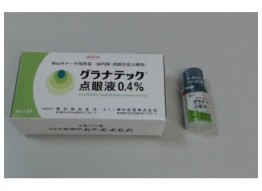Imuran tablets for Crohn's disease 50 mg from Japan
What are Imuran tablets 50 mg for Crohn's disease?
The active principle of Imuran tablets is azathioprine, a medicine of the class of immunosupressants. It works by inhibiting the development and growth of immunocompetent cells, and blocking the cooperative immune system. As the result, Imuran tablets significantly reduce inflammation in patients with mild or moderate Crohn's disease. Most of the patients undergoing treatment with azathioprine reach full remission within one year. Imuran tablets can be used together with other medications, like mesalazine or allopurinol oxypurinol/thiopurinol. However, Japanese doctors often prescribe this medicine for monotherapy, especially for patients who are unable to tolerate mesalazine and sulfasalazine.
Active principles: azathioprine
Amount: 100 tablets
Maker: Aspen Japan K.K., Tokyo, Japan
Indications: reducing inflammation in patients with Crohn's disease
How to take
Adults should take 1-2 mg of active principle per 1 kg of body weight as a daily dosage, typically, 50-100 mg, i.e. 1-2 tablets. Your doctor may adjust the dosage according to your weight and symptoms. However, the maximum daily dosage of 3 mg per kg of body weight should not be exceeded.
If these tablets are taken together with allopurinol oxypurinol and thiopurinol, the dosage should be decreased by 4 times.
Contraindications: do not use for the following patients:
- pregnant or breastfeeding women,
- patients with renal or hepatic impairment,
- patients with varicella,
- patients with bone marrow dysfunction,
- patients with infections,
- patients with hemorrhagic diathesis,
- patients with white blood cell count of 3,000/mm3 and less.
Important information
Make sure both you and your partner use an adequate contraception methods while taking these tablets.
Patient should wear clothing that filters out UV rays and apply sunscreen to avoid sunlight and UV rays in order to avoid risk of skin cancer.
At the beginning of the treatment the blood, liver and renal function tests should be performed every 1-2 weeks to avoid the risk of adverse reactions.
If an allergic reaction occurs, patient needs to stop using the medicine and consult with their doctor. If patient is taking any other medication or treatment, they should consult with their doctor in advance.



